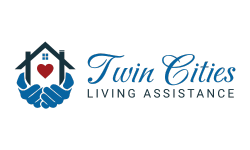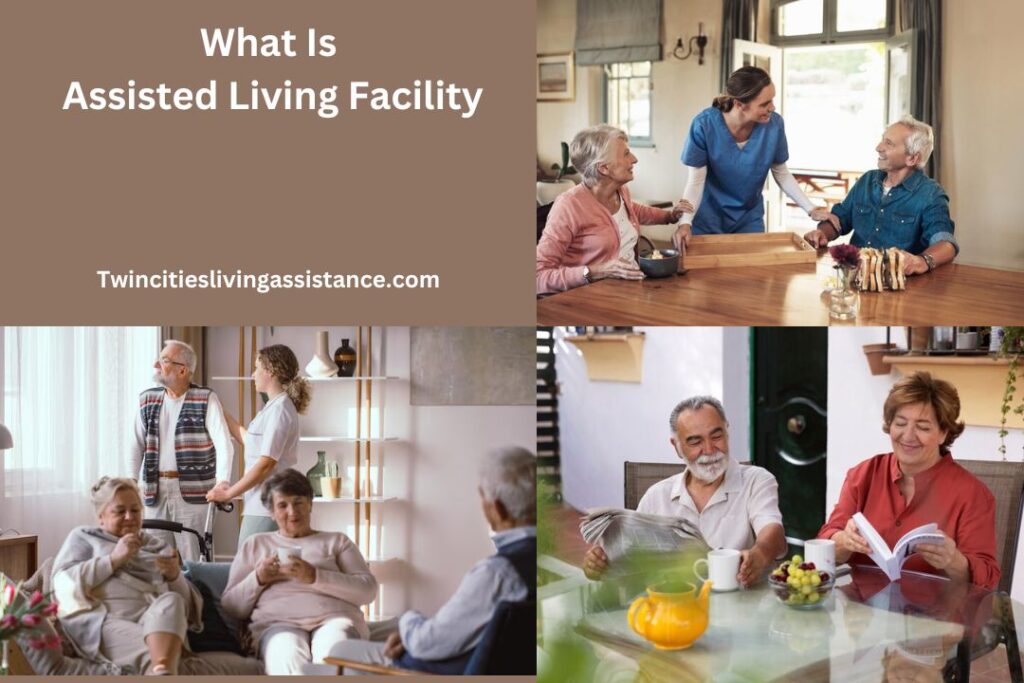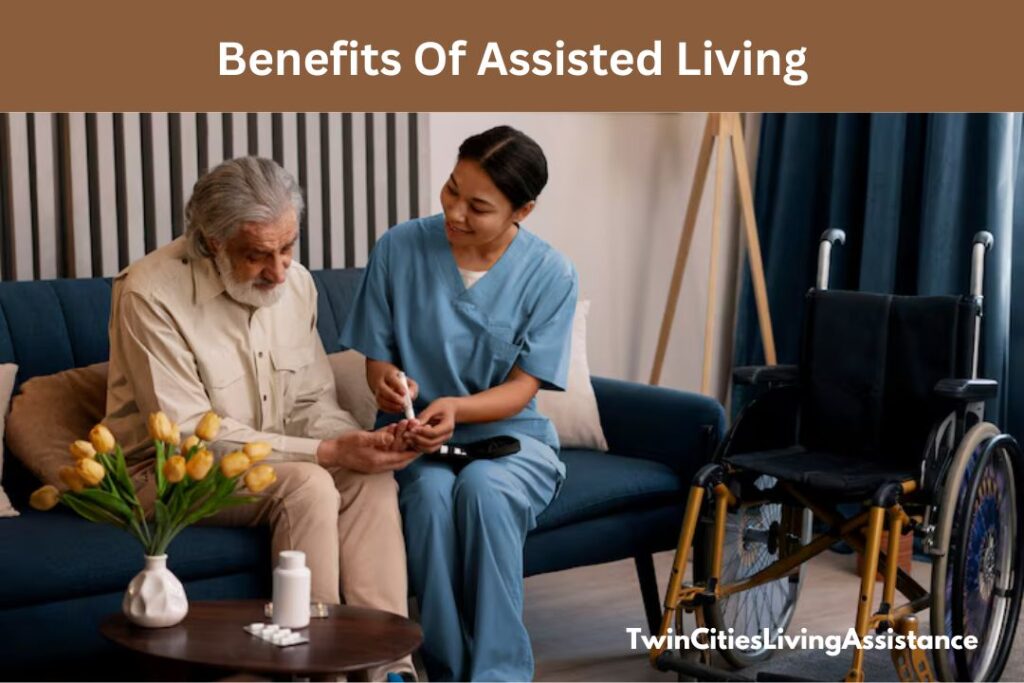Aging is a journey that comes with many transitions, and one of the most challenging decisions families face is determining when a loved one may need more support. While many seniors value their independence and prefer to stay in their homes, there often comes a time when living alone is no longer safe or practical. Recognizing the early warning signs can help families make informed, compassionate choices before an emergency arises.

At Twin Cities Living Assistance, we understand that moving to an assisted living facility is a significant emotional and financial decision. Our mission is to guide families through this transition, ensuring that seniors receive the highest quality care while maintaining their dignity, independence, and well-being.
If you’re wondering whether it’s time to consider assisted living for your parent, spouse or loved one, here are some key signs that indicate additional support may be necessary.
Changes in Personal Hygiene and Grooming
One of the first noticeable signs that a senior may need assisted living is a decline in personal hygiene. This could include wearing the same clothes for multiple days, body odor, unkempt hair, skipping showers, and dental care. These changes may seem minor at first but can be indicators of deeper issues such as physical limitations, cognitive decline, or depression.
For example, Mary, a 78-year-old retired teacher, always took pride in her appearance. But over the past few months, her daughter noticed that she had stopped doing her hair and was wearing stained clothes. Mary admitted that showering had become exhausting, and she feared slipping in the bathroom. We gave her the support she needed, helping her regain confidence while staying safe.
Struggles with Household Chores and Home Maintenance
A once-tidy home becoming cluttered, dusty, or unsafe is often a red flag. Seniors who were once meticulous about their homes may struggle with laundry, washing dishes, vacuuming, or taking out the trash. You may also notice expired food in the fridge, unpaid bills stacking up, or general disorganization.
For individuals with arthritis or mobility issues, household chores become increasingly difficult. What was once a simple task, like carrying a laundry basket up the stairs, can become a dangerous challenge. We provide housekeeping, laundry services, and home maintenance, ensuring seniors live in a clean, stress-free environment.
Difficulty Managing Medications and Healthcare Needs
Medication mismanagement is a serious concern among older adults. Many seniors take multiple prescriptions daily, and missing doses, incorrect amounts, or confusing medications can lead to serious health complications.
Seniors with chronic illnesses such as diabetes, heart disease, or respiratory conditions may require regular medical attention. Assisted living facilities often have on-site healthcare services, providing access to nurses, physical therapy, and emergency care.
Memory Loss, Confusion, and Cognitive Decline
Mild forgetfulness is a normal part of aging, but when memory issues interfere with daily life, it may indicate a more serious condition like dementia or Alzheimer’s disease.
Signs of cognitive decline include:
- Getting lost in familiar places
- Forgetting to pay bills or attend appointments
- Repeating the same questions or stories
- Misplacing items frequently
- Struggling to follow conversations
When seniors experience memory loss, safety becomes a significant concern. They may forget to turn off the stove, leave doors unlocked, or wander outside and forget how to get home. Assisted living communities provide structured routines, memory care support, and secure environments to keep seniors safe while promoting cognitive engagement.
Isolation, Loneliness, and Withdrawal from Social Activities
Social isolation is a growing concern among seniors, especially those who live alone. Many older adults withdraw from activities they once enjoyed, stop attending family gatherings, or avoid socializing with friends. Prolonged loneliness can lead to depression, anxiety, and even an increased risk of dementia.
In assisted living communities, seniors can access social events, group activities, and opportunities to build friendships. From game nights and exercise classes to book clubs and music therapy, these facilities create a vibrant community where seniors can stay engaged and connected.
Frequent Falls and Mobility Issues
Falls are one of the leading causes of injury among older adults, often resulting in fractures, hospitalizations, and long recovery periods. If your loved one has difficulty walking, struggles with balance, or has had multiple falls, their home may no longer be safe for them.
Hazards such as loose rugs, poor lighting, and staircases increase the risk of falls. Assisted living facilities are designed with senior-friendly features, including:
- Handrails and grab bars
- Wheelchair-accessible hallways
- Non-slip flooring
- Emergency response systems in every room
Having round-the-clock assistance in case of a fall can provide peace of mind for seniors and their families.
Caregiver Burnout: When Family Support Isn’t Enough
Many families try their best to care for aging loved ones, but caregiving can be physically and emotionally exhausting. If you are a caregiver and feel overwhelmed, stressed, or physically drained, it may be time to consider professional assistance.
Signs of caregiver burnout include:
- Chronic fatigue and exhaustion
- Feelings of guilt or frustration
- Neglecting your own health or personal life
- Difficulty balancing caregiving with work and family responsibilities
Assisted living facilities provide professional care, allowing family members to focus on spending quality time with their loved ones instead of managing daily caregiving tasks.
Recognizing the Right Time for Assisted Living
Deciding to move a loved one into assisted living is never easy. Many seniors resist the idea, fearing a loss of independence. However, assisted living communities are designed to enhance independence by providing the right level of support while allowing seniors to maintain their dignity and lifestyle.
If you notice these signs in your loved one, it may be time to start the conversation about assisted living. The key is approaching the discussion with empathy, patience, and understanding.
How Twin Cities Living Assistance Can Help
At Twin Cities Living Assistance, we specialize in helping families navigate the transition to assisted living. Our experienced advisors work closely with families to assess their loved one’s needs and find the best senior living option tailored to their lifestyle and health requirements.
We understand that every senior has unique needs, and we are committed to providing compassionate guidance every step of the way. Whether you are exploring options for the future or need immediate assistance, we’re here to help.
Take the Next Step
If you believe it may be time for your loved one to move to an assisted living facility, don’t wait until a crisis occurs. Contact Twin Cities Living Assistance today for a free consultation, and let us help you find the best care solution for your family.


